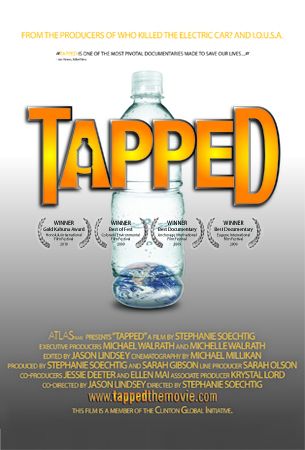
Back in March, we reviewed the stirring documentary Tapped, which chronicles the harmful environmental and health impact of our bottled water addiction. Since our World Water Day 2010 coverage, the filmmakers have embarked on an ambitious “Get Off The Bottle” 30 city, 30 day bus tour, set to conclude on April 22, Earth Day. Tapped director and producer Stephanie Soechtig took time out from the tour to talk to ScriptPhD.com about the tour, their efforts to educate people about bottled water, how the film’s release has impacted her, her wishes for changes in the advertising and marketing of bottled water, and things we can all do to make that happen. Day 2 of our Earth Week coverage continues on the theme of how valuable water is to our environment. For our interview with Stephanie, please click “continue reading.”
ScriptPhD.com: Where did the idea for Tapped come from? What inspired you to make this movie?
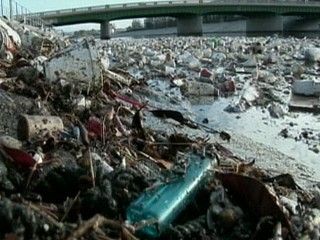
Stephanie Soechtig: The initial idea for Tapped began with the movie’s executive producer Michelle Wolrath sending me a link to this video about the plastic stew in the Atlantic Ocean [the Atlantic Garbage Patch]. At that time, there was ten times as much plastic as there was plankton, and now we know ten years later that there’s forty times as much plastic as plankton. I saw all that plastic in the ocean and it physically hurt my heart. I thought, “How do we not know about this?” I was a journalist, so I was pretty well-read. And I was also pretty green, so I followed all of these things and I hadn’t heard of it. And so, that led to a continued discussion with my executive producers (a husband-and-wife team) about what other environmental issues might be out there that hadn’t yet been covered. Water and plastic kept coming up. And eventually, [we came to a consensus] to do a movie on bottled water.
SPhD: Can you talk about the arduousness of the filming schedule?
SS: I think that the filming seemed arduous at the time, however now in comparison to the 35-day cross-country trip, it looks like a walk in the park. We got to fly most places [during the filming] and we had a team with us, and everything paled in comparison with what we’re doing now. The toughest part about making Tapped was picking what actually got to stay in the film and what had to be cut, because there was so much to cover, and so the film kept evolving and taking on a life of its own. The filming process, while it was rushed, I have a news background, so I was used to a quick turnaround. It was a really good time, and we had a great group who were all primarily women. We had three moms on the staff, so it was great to create an environment for a group of women who were all looking out for each other.
SPhD: I’m sure you get asked this all the time, but we’ll ask again. A huge thesis of the film Tapped is the dangers of bottled water usage. The number one alternative, of course, is to drink tapped water. However, the documentary Flow raises some questions about the safety of tap water. What is your response?
SS: You know, that’s not the impression I got from Flow. I knew they brought up problems with some tap water, but I always feel like Tapped picks up where Flow left off, with Flow as a perfect companion piece. We are aware that large portions of the country lack access to clean drinking water. We try to say it a few times in Tapped, that we believe there is a time and a place for bottled water. If I was in Mexico, I’m sure I would drink bottled water. And so, if you live in those portions of the country that don’t have access to clean drinking water, perhaps bottled water is a short-term solution. My concern is that I think we have all turned to bottled water as an alternative to tapped water. Rather than raising hell about lack of access to clean drinking water in parts of the country, we’ve just quietly gone and bought bottled water. And I think that sends a really dangerous message to our leaders that tapped water isn’t important to us. While I do think it may be a short-term solution for parts of the country [and world], and for disaster relief and times where it’s a healthier alternative, but for the most part, it’s become a dangerous alternative that has lulled us into this false sense of complacency to think, “OK I can get bottled water, so I’m fine.” As we know, 40% of bottled water is tapped water, so it could be suffering from the same problems depending on the area that it’s
bottled in.
SPhD: I’m lucky to live in a part of LA that has really clean tap water, so I don’t have to think twice about drinking tapped water that I quite frankly don’t even filter with a Britta. What do you recommend for people who have seen the film, who want to commit (or recommit) themselves to drinking tapped water, but they might have reticence?
SS: Yes, because again, the municipal supply may be safe, but you don’t know what the pipes are like delivering it. So what I would advise is one of two things. Have your water tested directly from the tap. Either send it out, buy an at-home testing kit, or a lot of the companies trying to sell you a filter will come in and test it for you. See what your water contains and buy the appropriate filter to filter out what you need. We have become fans of the filter called Multipure. The reason we like them is because they have some of the highest official certifications independently tested. And they also have a variety of options—you can have a house filter or a counter-top filter. So we like that they offer that price range for people.
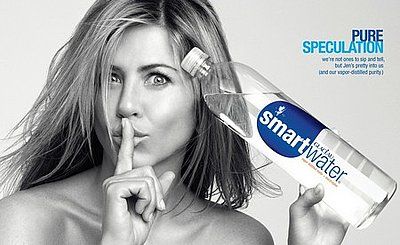
SPhD: We’re big fans of media and advertising at ScriptPhD.com. And one of the things I loved about Tapped is that you talked about the genius advertising and marketing campaigns that have contributed to the popularization of bottled water. When you have famous celebrities like Jennifer Aniston endorsing SmartWater, could celebrities be convinced to not only end these endorsements but to promote something as unsexy as drinking tapped water?
SS: I would love that. If that’s the only thing that Tapped accomplished, and we didn’t sell a DVD for my whole life, I’d die a happy woman. That type of accomplishment and that type of endorsement of protecting our tapped water is long overdue and needed, but the municipalities don’t have the multi-million dollar budgets a company like SmartWater has. Speaking frankly, what I find upsetting is these people that make plenty of money on the films that they do—like Jennifer Aniston, who’s doing very well—would lend their faces to tap water and repairing the infrastructure. Which may be less sexy, but then again, that’s why you need someone like Jennifer to raise the awareness to it. We live in a celebrity-driven culture. It troubles me that she would endorse a product like this, and I have to honestly believe that she just does not know the truth about bottled water. That’s why we have a petition to her [and SmartWater endorser Tom Brady] on our website asking them to end their endorsement.
SPhD: It’s funny to me how plastic bottle manufacturers react to movies such as yours or anyone that brings up the deleterious issues of bottled water. Recently, for example, Dasani, which is a brand featured in the film, announced that they’re manufacturing bottles made partially out of “biodegradable” plant material. Meaningful change or greenwashing?
SS: I think it’s greenwashing. I wish it wasn’t. I wish I didn’t believe this. First of all, the fine print on the new Dasani plant bottle says “up to 30% of biodegradable material,” and that’s such a scam. Up to 30% could mean anything. The second problem is that they continuously sabotage the Bottle Bill, which we know increases recycling and has a proven rate of return. So putting 30% of plant material in a plastic bottle only makes it less recyclable because we don’t have the recycling facilities to process that type of material. It also emphasizes to me that they continuously argue against people like me, that plastic isn’t bad for you and I’m some crazy fearmonger. Well, if plastic isn’t bad for you, then why are they switching? I feel like they’re only underscoring my concerns about plastic.
SPhD: Well, it’s a well-known fact that the FDA has ignored BPA safety for quite some time, and is only now embarking on a controversial $7 million dollar study, when we know the ill-effects of this compound well and good. It sort of feels like the government has their hands tied behind their backs in terms of any meaningful change.
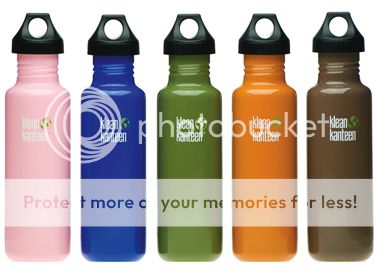
SS: And I’d say that they have their hands tied behind their backs by large lobbying dollars. As we have seen, money talks, and the public is sadly not a priority. The really interesting thing to learn was about the Toxic Substance Control Act. It’s 34 years old, and the burden of proof on the EPA to say that a chemical is dangerous can only be attained from the information that the chemical industry provides. So what happens is that I think BPA is safe, and I hand in to the EPA or the FDA my findings. But I make $11 billion off of this product, so I’m not going to hand in findings that show that anything is wrong with it. At the EPA and the FDA, I’m not given a budget to challenge these things. They only look at their science to raise concerns about their product. There is nothing logical about that.
SPhD: Let me ask you this, since you are literally on your road trip as you’re talking to us. What has been the response from people who have viewed the film and interacted with you during the 30 day road trip?
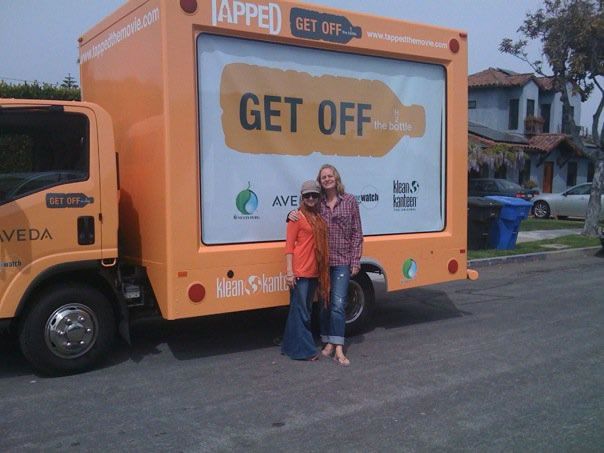
SS: We’re definitely making an impact. And that’s kind of the fuel that keeps us going every day. [For] people in the theatres, after Tapped ends, it’s nothing short of magical what happens after those Q&As. People are pissed, they’re inspired, and they become aware during the question and answer session how much the burden of change lies on their shoulders. So they look at us and say “Now what?!” and I would respond that it’s up to you. This movie is just something we created as a tool to bring about change. We’re heavily reliant on the public to spread this word, to say that this is important to them, and to make sure that they get it out there. And they’re into it! Which is so awesome to see. People will commit, come out and buy five DVDs at a time because they want to send it to everyone that they know.
SPhD: I think it’s such an important new methodology of enacting change. Fight corporate cash with grassroots power!
SS: I hadn’t realized how difficult it was to enact change with a grassroots movement. I thought people would naturally come out in the thousands and be like, “Of COURSE we care about tapped water.” But it’s not quite as easy as I had hoped it would be. It’s a very slow-growing movement, and of course we also have the problem of media that’s also beholden to advertising dollars. This makes it difficult to get the kind of exposure that may help us reach a larger audience. So we’re literally doing it one room at a time.
SPhD: One of the themes we continually come back to is corporations’ advertising dollars and power. One of the biggest corporations covered in Tapped is Nestle, for both their egregious practices of pumping water out of communities as well as how much they collude with plastic manufacturers. Any ramifications for these companies because of your movie and advice for customers that want to use their wallets to make a statement?
SS: We have seen bottled water sales go down this past year. Bottled water sales were doing nothing but going up for the past ten years. This past year we saw a slight dip. The water industry credits it to the recession. And that may absolutely have a lot to do with it, but I think there’s been a bottled water backlash, fueled in part by Tapped and grassroots organizations working tirelessly to get the word out there. So I think there are repercussions, and I think they’re getting desperate. There’s this guy, Tom Lauria, who is the lobbyist for the International Bottled Water Association, and if you go online to look at any story about Tapped or more recently about the story of bottled water, you’ll see he writes in to discredit the film. He spends his whole day doing it. The interesting thing about Tom Lauria is that he used to be the head lobbyist for the tobacco industry, and I think that’s no coincidence—that the bottled water industry would seek out someone who has that background, given the information that is coming out about both the environmental damage and the chemical dangers that people may be experiencing.
As far as consumers, the easiest thing is to not buy bottled water. I would say taking the Bottled Water pledge that we have on our site, which then gets sent to bottled water companies to show them how many people have agreed to give up their habit. And lastly, I think people underestimate the power of writing a note and complaining and fighting legislation and paying attention to the people we elect and letting them know what is important to us. Don’t sit back and hope that things will somehow take care of themselves. We have made it easy for people on the Tapped website to find and sign petitions.
SPhD: How has your consumption and behavior changed after the making of this movie?
SS: I formed a lot of new habits by bringing a Kleen Kanteen water bottle with me everywhere I go. But it’s actually changed my life in so many other ways, in trying to generate as little waste as possible. During the making of this film, I had a Starbucks latte waiting for me every morning. When you see the Garbage Patch, you realize it’s not just water bottles. They’re a big offender, but you start to cut down on all waste. We bring our mugs now when we want to get coffee, we stay away from plastic Tupperware, try to stay away from any plastic whatsoever. When I order food to go, I ask them to wrap it in tin foil. I’m just much more aware of how much plastic is out there, and how mindlessly we grab for it. It’s just the little things. Like for our road trip, one of our producers brought a Tupperware filled with silverware so that we wouldn’t use plastic knives and forks. Some people go to more extreme measures than others. And I have just decided that the message we need to send is that doing anything is better than doing nothing. Don’t think that any task or any sacrifice is too small.
*********
Tapped trailer:
A list of things you can do RIGHT NOW to get off of bottled water and help save our environment.
Urge a member of Congress to support The Water Protection and Reinvestment Trust Fund by signing a petition.
Visit the World Water Day website to find out about the global water crisis and see what you can do to make a difference.
CaptainPlanet is an LA-based, Northwestern University-educated, eco-charged sustainability guru who loves film, psychology and saving the planet, one waterless urinal at a time…
~*CaptainPlanet*~
*****************
ScriptPhD.com covers science and technology in entertainment, media and advertising. Hire our consulting company for creative content development.
Follow us on Twitter and our Facebook fan page. Subscribe to free email notifications of new posts on our home page.
]]>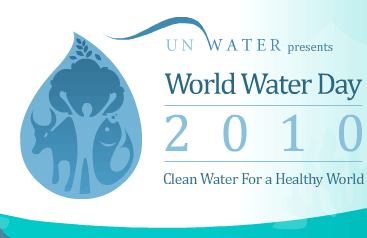
“Whiskey is for sipping, but water’s for fighting.” —Mark Twain
Today, March 22, 2010, is World Water Day, an initiative formed at the 1992 United Nations Conference on Environment and Development. As we head into Earth Day next month, no environmental issue carries more sociopolitical, economic and health ramifications than a clean and abundant supply of water. Some of the highest global morbidity and mortality rates are directly related to lack of access to clean water—both in contracting communicable diseases as well as agricultural impact that aggravates famine. At the heart of this discussion is a frenzied (and growing) thirst for bottled water; Americans alone bought more than 29 billion bottles in 2007. If you have long suspected that bottled water is not good for the environment, but only had a hazy notion about the specific consequences of the bottled water industry, Tapped, an Atlas Films documentary about to be released on DVD, will knock your socks off. The film expertly chronicles the insidious practices of bottled water companies and the dire consequences it has on our collective health, communities, environment, economy and policy in ways you never would have imagined. Our special World Water Day post under the “continue reading” cut.
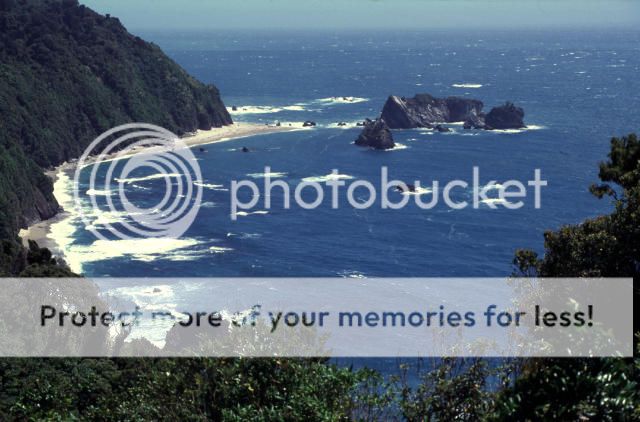
Tapped features sparkly footage of bodies of water the world over, from oceans to rivers, lakes, ponds and streams. The sounds of burbling brooks and waterfalls throughout the film feel primal and urgent, as much a reminder of nature’s fragile beauty as they are a ticking clock, and the countdown is not in our favor. An opening salvo in the film’s first sequence sets the tone with a chilling statistic: by 2030, two thirds of the world will lack access to clean water. The film quickly segues into a scary question that is explored throughout the film; what happens if you take water, a requirement for life on earth, and turn it into a commodity, controlled by private corporations?
The answers are disturbing.
The first third of the film focuses on the three largest bottled water companies in America; Nestle, Coke and Pepsi. Nestle operates in the United States under multiple brands, including Poland Springs, Arrowhead, Ozarka, Ice Mountain, Deer Park and Zephyrhills. Coke owns Dasani and Pepsi owns Aquafina. Bottled water started as a small trend in America in the 1970s when Perrier introduced bottled sparkling water to urban professionals by way of small green glass bottles. But it wasn’t until 1989 when plastic bottles made from more mobile and lightweight PET plastic were introduced that the business really took off. At that point Coke and Pepsi got into the game because their soda sales were declining. The industry continued to grow at explosive rates, and by 2007 Americans inexplicably spent more than $11.7 billion on a free natural resource, something that was rightfully pegged in the film as “one of the greatest advertising and marketing feats of all time.”
Where these companies get their water is a controversial issue. Often, they buy small, cheap plots of land in small communities, install a water pump to access the community’s underground supply, and pump to their heart’s content with little-to-no overhead, taxes, regulation or accountability. The laws governing water usage in the US make this scenario possible. Surface water (oceans, lakes, rivers, etc.) is held as a public trust, and hence protected from poaching, or water mining, as the practice is often called. The loophole, however, is that underground water in most states is governed by a law established in the late 1800s called “absolute dominion,”
which basically translates to “he who has the biggest pump gets the most water.”
Small communities all over the country have been subject to this process, and often don’t know it’s happening until the corporations have already set up an operation. Communities in these situations have started organizing to stop the corporations from taking their water, but it is an uphill battle as corporations have teams of lawyers, lobbyists and other resources to advance their interests. In one small town in Maine profiled in the film, Nestle has set up a Poland Springs pump where it costs about six cents per gallon to pump water out of the ground. (A recent fight by Maine citizens, documented here and here has caused considerable headaches to Poland Springs.) The corporations then turn around and sell the water for $6.00 per gallon. This practice is happening in states around the country including California, Colorado, Arkansas and Michigan. The film points out that these corporations are setting a dangerous precedent that will allow them to control water sources in the future, which is why activists and concerned community members are desperately fighting to change the laws. Even citizens of Serbia, the birthplace of ScriptPhD.com editor Jovana Grbi?, are crying out against privatizing and selling its 300 natural springs, the most abundant in all of Europe, for water production.
When Congress tried to hold the water manufacturers accountable for depleting municipal water sources in times of drought, Pepsi testified that their water pumping had nothing to do with lowering the water levels of the local lakes and rivers. In a particularly surreal moment of the film, a Pepsi official tells a congressional panel with a straight face that beavers and their dams are to blame for lowered water levels. Dennis Kucinich (D, Ohio), the congressman leading the panel, counters back, “How many beavers would that take?” It might be funny if it weren’t so alarming. Take a look at this CNN report that resulted from revelations during the Congressional hearings:
The Environmental Devastation of Plastic
Act II of Tapped reveals the deleterious ecological and health fall-out from plastic bottles. Most of the bottles end up in a landfill or the Pacific Ocean. Often called “The World’s Largest Dump,” the Western Garbage Patch, located between Hawaii and California, is twice the size of Texas and largely composed of plastic. (An Eastern patch also exists, and video of it has been compiled here by the marine research group Algalita.) The film takes us to a bottling plant in Corpus Christi, Texas where local residents are dying from cancer due to the benzene emissions from the plant. They are often stuck living in a dangerous situation because no one wants to buy their home due to the close proximity to the plant. The film interviews several of these residents in one of the saddest moments of the documentary. One such interviewee, a man dying of cancer, says that were it not for the love of his family, he would feel like a piece of trash, his body the unwilling receptacle for toxic emissions from the faceless corporation making plastic bottles in his backyard. This man died shortly after the making of the film, and the film is dedicated to his memory.
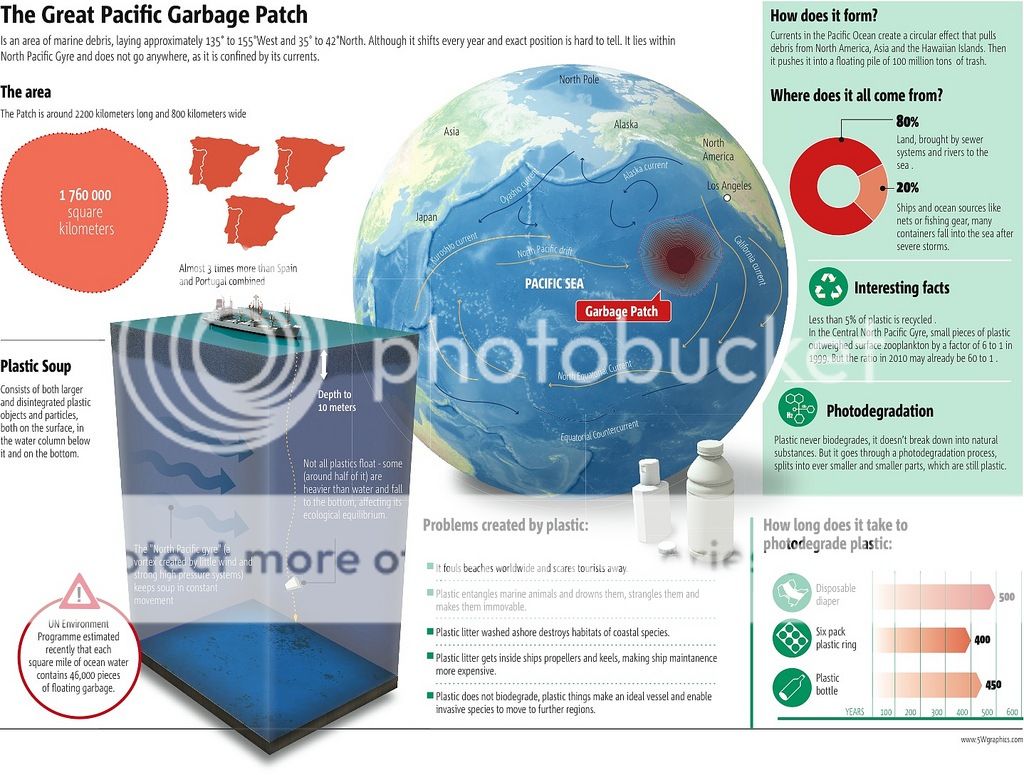
Captain Charles Moore, the founder of Algelita, appeared last week on David Letterman’s show to discuss the Garbage Patch:
About 40 minutes into the film there is a quick shot of a customer at Whole Foods placing his groceries on the conveyor belt at the cash register. The camera angle is low enough so we don’t see his face or the cashier’s face. We only see what he is buying; a sandwich, a bag of chips and a bottle of Smart Water. The image is a punch to the gut because that nameless, faceless scene has been me, too many times to count, and most likely it’s been you as well. The scene is a subtle reminder that every time we purchase a bottle of plastic water, we’ve voted “yes” for a system that is killing poor families in Corpus Christi (and elsewhere) and littering beaches in Hawaii with such large amounts of plastic that an army of dump trucks couldn’t clean it up. Even more insidious is the amount of microscopic plastic particles floating around in oceans from thrown-away plastic bottles. When one activist scoops up a handful of sand from a Hawaii beach, it looks like he’s holding a fistful of pulverized Lego’s; the plastic particles quickly replacing the sand particles. This is a result of what happens when people don’t recycle their bottles. Bottles left on the street are picked up by rainwater and washed into rivers and stream, and ultimately end up in the oceans. But recycling bottles is not exactly an entirely sustainable solution either, as the film points out. Municipalities who produce tap water, and who are in direct competition with bottled water, are often left holding the tab to recycle the leftover plastic bottles from their competitors, but with only a fraction of the budget that the corporations have.
BPA: Dangerous Chemistry
A more worrisome horror of plastic bottles is an insidious chemical called bisphenol A (BPA), used to make the hard, clear 5-gallon kind bottles most often found at a water cooler. Frederick Vom Saal, PhD at the University of Missouri, Columbia is a leading expert on BPA and its effects on human health. He calls it one of the most potent, toxic chemicals known to man because even in small amounts, it profoundly disrupts every single part of the developing male reproductive systems in lab animal studies, even at doses 25,000 smaller than any dose that has ever been studied. In larger doses, it disrupts the thyroid gland, and its been linked to a plethora of diseases from cancer to obesity, diabetes, and attention deficit and hyperactivity disorder. A recent study even found a link between BPA exposure and permanent fertility effects. These diseases have been killing people at increasingly higher rates over the last 30 years, a direct correlation to the amount of BPA floating around in consumer products over the same period of time. The FDA has not closely regulated BPA and for a long period of time, as the film reveals, relied on studies from bottle manufacturers (the people who make bottles out of BPA for a living!) that state BPA is not dangerous in small quantities. The Huffington Post recently published a series of articles revealing that BPA is found in cash register receipt paper and cardboard pizza boxes, among a host of other everyday items.

In a particularly effective scene from the film, filmmaker Stephanie Soechtig boldly asks an FDA official about their role in regulating BPA. A furious FDA press official abruptly interrupts the interview from off screen and states that if he knew BPA would be discussed, he wouldn’t have allowed the interview. The failure of the FDA to protect the public from a chemical as dangerous as BPA could be the last straw in the public’s tolerance for government incompetence and corruption, which explains why the FDA doesn’t want to discuss such a volatile subject. BPA is found in a whole host of consumer products including dental fillings, canned foods, food wrappers, food labels, and baby bottles. The good news is that due to mounting public and scientific pressure, the FDA is conducting a new study on the safety of BPA, but the $7-billion-a-year BPA industry will surely put up a fight to stop any regulation. To protect your own health, the film’s website says you should look for “BPA Free” labels whenever you buy hard plastic and avoid eating canned foods or drinking from hard plastic water bottles.
The soft plastic water bottles that most of us drink from do not contain BPA, but that doesn’t mean they are safe. As one expert in the film says, we don’t know the long term effects of drinking from PET plastic bottles. A recent British study showed that pregnant women exposed to phthalates, common across all plastics, gave birth to babies with gender defects. And in a particularly disturbing sequence from the film, the crew of Tapped buys their own samples of bottled water and sends them to toxicology labs for testing. Due to the large marketing and advertising budgets of bottled water makers, we have been led to believe for a long time that bottled water is safer than tap water. But the list of chemicals found in the bottled water, including styrene, dimethyl phthalate, and di-n-octyl phthalate, shatters that notion.
Tapped ends on a hopeful note, reminding us that change is possible, and highlighting the various battles that water activists and concerned citizens have won in recent years along with some tips for the consumer to drink filtered tap water from a reusable water container and to urge leaders to invest in our municipal water infrastructure. The Mayor of San Francisco banned bottled water at any municipal or government location. Seattle banned sales altogether at city events. Perhaps change is in effect. News outlets reported late last year that bottled water sales are starting to slump for the first time.
Look for Part II of this article containing an exclusive ScriptPhD.com Q&A between CaptainPlanet and filmmaker Stephanie Soechtig in the coming week as we continue to explore conservation issues and what can be done to enact positive change.
Take a look at this hair-raising 5:00 extended Tapped trailer:
Tapped is slated for official DVD release (with bonus features) May 1. Visit their store to purchase the DVD and Kleen Kanteen PBA-free water bottles.
CaptainPlanet is an LA-based, Northwestern University-educated eco-charged sustainability guru who loves film, psychology and saving the planet, one waterless urinal at a time…
~*CaptainPlanet*~
*****************
ScriptPhD.com covers science and technology in entertainment, media and advertising. Hire our consulting company for creative content development.
Follow us on Twitter and our Facebook fan page. Subscribe to free email notifications of new posts on our home page.
]]>